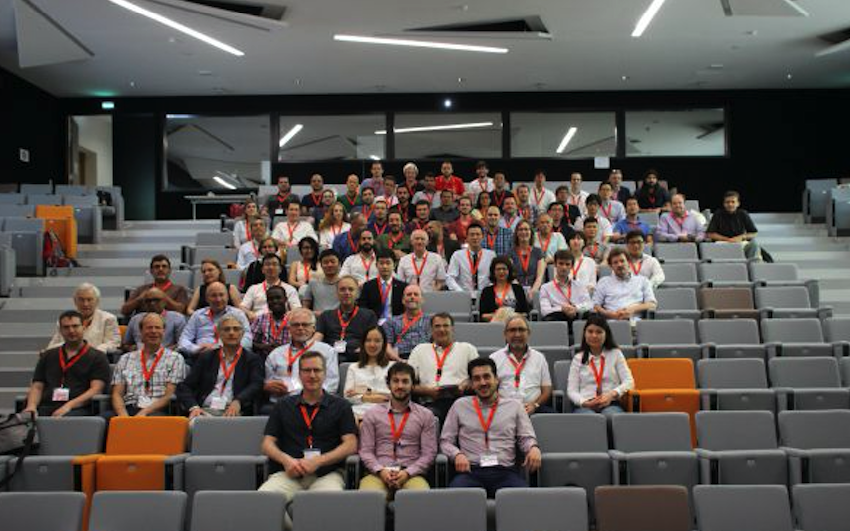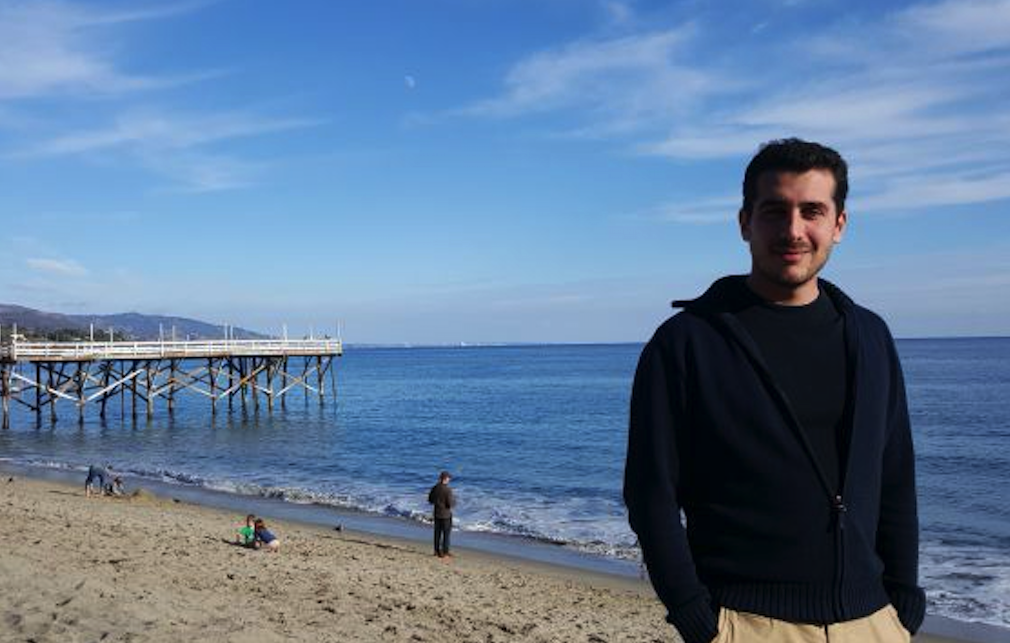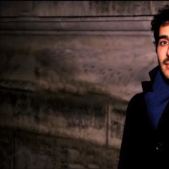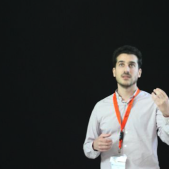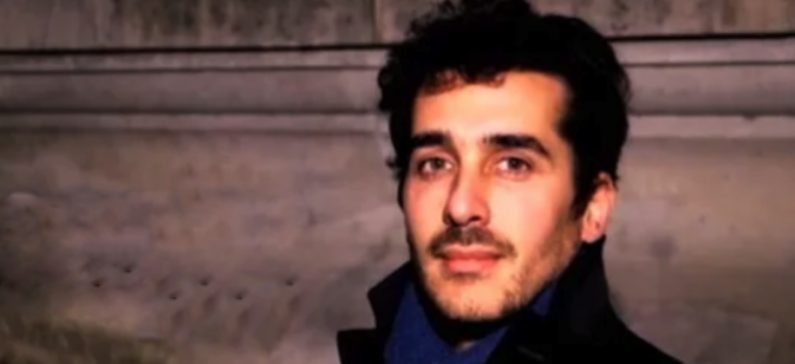
Assistant Professor at the École Nationale des Ponts et Chaussées in Paris
Dr. Yannis Stefanou is a graduate of the School of Civil Engineering of the National Technical University of Athens and holds a postgraduate degree in Applied Mechanics from the School of Applied Mathematics and Physical Sciences of the NTUA, from which he also received his PhD in 2010.
He works with the École Nationale des Ponts et Chaussées, in which he is an assistant professor, and IFSTTAR, formerly Laboratoire Centrale des Ponts et Chaussées, where he is a researcher.
His research focuses on geo-metals, which are very heterogeneous materials, particularly in the study of their stability under high pressure and temperature conditions. The theoretical, numerical and experimental tools that it develops cover a wide range of applications ranging from seismic behavior of structures such as masonry and classic or newer monuments to the creation of earthquakes and the re-activation of seismic fractures.
His interest in the monuments began with his Ph.D in 2004, which aimed at assessing the stability of the SE-E section of the rock and the wall of the Acropolis. During his Ph.D thesis, he worked at the Parthenon’s Restoration Technical Office, which influenced his research for some years.
In 2011, he participated in a competition for the recruitment of a researcher / assistant professor, applied for, won the first place and decided to work in France at the age of 29. It has been seven years since then and his experience is positive at various levels, he says. He knows another culture, a wider and more scientific way of life. The question of whether he belongs to those who left from Greece because of the economic crisis, he responds that apart from the crisis playing a major role, he remembers his professor to urge him and his fellow students to travel and stay abroad so that they know different scientific ideas and cultures – something that he considers it very important. As he says in an interview, moving abroad was something he wanted, but the crisis probably helped and accelerated his decision.
Shortly afterwards, he was awarded a prize for his proposal to the European Research Council, which is funding innovative ideas for young researchers. Young researchers are considered scientists who have obtained their PhD diploma for up to seven years. Each interested researcher had to propose a research-related topic, which is going through a crisis, in which a detailed assessment is made of why competition is high, as research proposals come from around the world. His own proposal concerned the control of earthquakes at their origin.
“There are major earthquakes in Greece”, he says in a recent interview. “But let’s not forget that there are other areas with even more intensive earthquakes. Recent examples are earthquakes at the Iran-Iraq border, Mexico, Italy, a few years ago in Nepal; the list is long. Certainly, the biggest cost is human lives in areas where seismic disasters have the first. However, there is also the economic cost, which has both short-term and long-term effects (living standards, poverty, the need to build or repair schools, hospitals…). It should be noted that this cost is shared to a certain extent across the globe. In the case of the recent earthquake in Nepal, for example, only the countries belonging to the European Union provided hundreds of millions for humanitarian aid”.
Dr. Stephanou, responding to the question about his qualifications that helped him win the funding of the European Council, says that it helped him initially the fact that he had a clear idea in his mind, which was incubated from the end of 2010, at the end of his Ph.D. dissertation. At the time, this idea seemed difficult to realize, but slowly, as he was advancing his research, found it to be feasible. “Mathematics shows that there are conditions that ensure the desired outcome and funding will help me to explore this question, as well as other open scientific issues in depth. In addition to setting a detailed research plan, one has to be specific and clear to be able to convince himself and others that what he proposes is original, realizable, that he is able to do it himself, because research will be carried out by the researcher himself and the team he will recommend, and that his program will have important results for society and science. If he can prove these points, he means he has done very well”.
As far as the immediate future of the research project is concerned, he is forming a group of 6-7 people, who will develop experimental, theoretical and numerical tools, trying to answer some open queries about the generation of earthquakes, to investigate the possibility of avoiding disastrous earthquakes in the future. After the first five years, depending on the results of the survey, it will depend on what the continuation will be. “I have already written a description of the various positions, which I will share in various scientific networks so that I can choose the most suitable for each subject”, he notes.
Read what he said in an interview at www.arsakeio.gr:
– Did the Greek education system give you the necessary supplies?
“I will talk about the education system until 2004, so I completed my basic studies. I joined the Civil Engineers of the NTUA in 1999; before I was a student in Tositsio. The “desmes” (grouped subjects – courses) was then a system that suited me a lot, in the sense that I was able and immersed in Mathematics, Physics and Chemistry. This gave me very good bases, which helped me both at the Polytechnic and later on. I can not hide that sometimes I can open a school book from the “Beasts” to remember something I want.
In the university, the student who is interested can learn a lot; but many students, including myself to a certain degree, are kind of “lost”. There are many courses that are not targeted, they do not necessarily concern the student, but they are nonetheless mandatory. I would like to have more flexibility, and the possibility of choosing other courses of the NTUA. I believe that this would be particularly important for personal scientific development, especially in times of uncertain and unpredictable economic market trends. As far as I am concerned, I finally read the books of other lessons and attended the lessons I was interested without being part of my formal curriculum. This initiative helped me a lot. However, I would like to note that the teaching of a large part of the courses is at a high level and I have acquired strong bases”.
– Would you like some elements of the French education system to be applied in the Greek one?
“I find it very important that at least for some schools in Greece, if it is not possible for all, that students must have more flexibility in the composition of their curriculum. For example, I have fellow civil engineers who wanted to work systematically on programming. They could get strong bases within the academy if they wanted it, earning time and being more competitive on the labor market later on. The stiffness in the education system is a loss for the country, because especially in a period of crisis, if we take the example of civil engineer, when he finishes studying he will not have a job. On the other hand, however, his entry score in the NTUA and his skills are very high. Is not that a waste of resources? I think that a généraliste engineer, as we would say in France, would be more useful and adaptable to social needs”.
– What is the treatment of the French towards a new competent scientist in relation to the situation in Greece?
“My feeling is that France is a combination of the culture of the North and the Mediterranean and that’s good. For example, in Greece as well as in Italy, as far as I know, it takes many years for someone to become a teacher, because he has pass through all the stages of the local system (there are exceptions, of course). In France this is not the same. There’s also a certain human weakness, the so-called hierarchy, and some difficulties, but these can be overcome more easily, at least on the basis of my six-year experience in this country. If a young person believes that he can work, and deserves it, he will be rewarded for it. In Greece this feeling is usually lost easily in procedures, lack of motivation, encouragement and of course due to financial difficulties”.
– Has Greece, after your award, shown some special interest in approaching you?
“For the moment there is no such indication from a particular organization. There might be in the future, but what we have found is that these things are probably not related to each other”.
– Do you see continuing your career in France, or are you thinking of coming back to Greece or continuing somewhere else?
“Everything is open, talking about both Greece and any other country. Greece is certainly our country. Maybe someday I’ll be back. But whether it will be for scientific reasons, I do not know. Life is a non-linear, dynamic, chaotic system in the mathematical sense of the term. It is a multiparametric course that depends on luck (in the sense of it), the conditions – if you want – that we can not control in absolute terms”.


